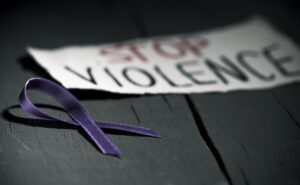
There is little doubt that domestic violence is a serious crime, but you may be surprised to learn that only about 1 in 4 calls to police about a domestic violence situation result in criminal charges. You might immediately jump to the conclusion that the system favors abusers in instances of he-said, she-said, but that’s simply not true. Recent data tracking domestic violence calls in Minneapolis found that the majority of calls on the subject were not about actual domestic violence crimes.
“The vast majority of them … there was no crime,” said Assistant City Attorney Jennifer Saunders, who is a supervisor in the office’s criminal division. “It was just families having, you know, moments of crisis and having issues and they didn’t know who else to reach out to.”
These “moments of crisis” may leave a person wanting assistance, but the situation itself isn’t a crime, yet people are calling 911 to report domestic violence. These moments of crisis can include instances of:
- Yelling between parents
- Yelling between parents and children
- Requests to stop a non-criminal action that are going unheeded
- Developing family tension
- Underlying power imbalances in relationships
When police intervene and fail to levy criminal charges, it can this leave the callers frustrated because they don’t end up getting a healthy resolution to their issue, but this process also takes away valuable police resources from others who may need it more. It’s clearly not the best solution for either side, and since the majority of calls end in this fashion, city leaders began looking for better ways to handle non-emergency domestic problem calls.
New Resource Established
In the Minneapolis city budget for 2020, $150,000 was allocated to help provide more resources for domestic violence issues. Part of the money will be used to operate an emergency, civilian-run call line where those dealing with escalating domestic issues can call and speak to a specialist about how to best deescalate certain issues that do not require a police presence.
The goal of the program is to have domestic violence prevention advocates on-call to answer emergency calls from residents who need help resolving disputes with family members or loved ones. These advocates could help deescalate the situation, provide the caller with resources to prevent or mitigate future issues, and direct them to city-sponsored meetings or counseling sessions to help them understand how past experiences can affect behaviors. The program is expected to start small in just one of Minneapolis’ five districts, but if it goes well, they hope to expand the program citywide.
Another part of the fund will be used to help divert low-level offenders towards therapy and behavior counseling instead of the traditional criminal justice system, as studies have shown these tend to work better at preventing recidivism. This will involve working closely with community programs to see what’s working, what’s not, and how to best build on current counseling protocols to ensure each family gets the individualized care they need.
If you or someone you know is facing domestic violence charges or simply wants help with a domestic issue, give our office a call and we can help with your case or point you in the right direction.





